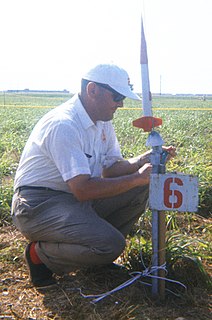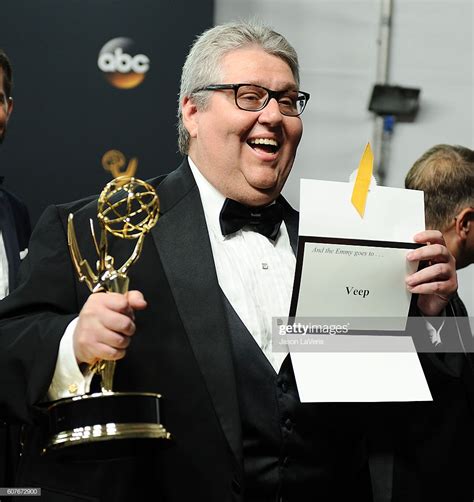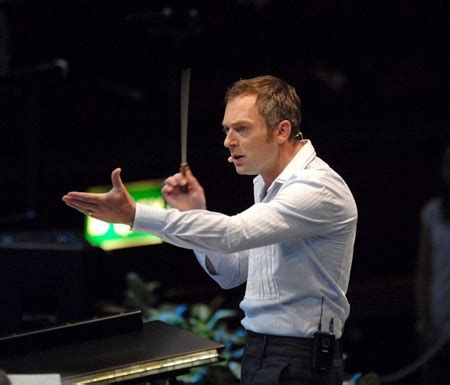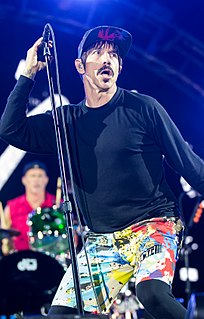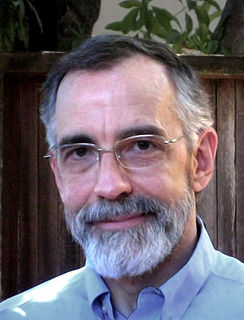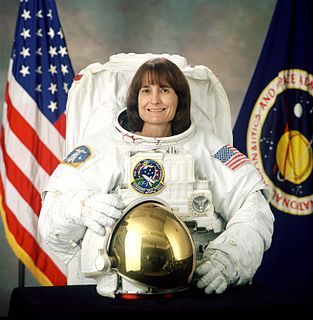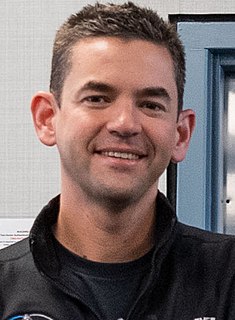Top 271 Orbit Quotes & Sayings - Page 4
Explore popular Orbit quotes.
Last updated on April 17, 2025.
Asteroids are deep-space bodies orbiting the Sun, not the Earth, and traveling to one would mean sending humans into solar orbit for the very first time. Facing those challenges of radiation, navigation and life support on a months-long trip millions of miles from home would be a perfect learning journey before a Mars trip.
Evolution is all about passing on the genome to the next generation, adapting and surviving through generation after generation. From an evolutionary point of view, you and I are like the booster rockets designed to send the genetic payload into the next level of orbit and then drop off into the sea.
I really love sharing with young Canadians the changes we're seeing in the space program right now with what we call "commercial space." We have commercial cargo delivery to the space station, and now we have what we call "commercial crew," where we're going to be delivering people to low orbit on new vehicles that are being designed by Boeing and SpaceX.
She was an absolute genius as a comedic actress, with an extraordinary sense for comedic dialogue. It was a God-given gift. Believe me, in the last fifteen years there were ten projects that came to me, and I'd start working on them and I'd think, 'It's not going to work, it needs Marilyn Monroe.' Nobody else is in that orbit; everyone else is earthbound by comparison.
Going into orbit around Earth - where the space station is today, and where the space shuttles and John Glenn and all those folks go-that's three-eighths of an inch above a schoolroom globe, just FYI. That's not very far from Earth. Yes, you are off Earth, but you're not really going anywhere yet. The moon was the only real destination.
Market studies suggest space tourism-a rubbernecker's trip to earth orbit-is likely to draw 50,000 passengers a year if the ticket can be pushed below $25,000. That's what tens of thousands of people spend each year on competing trips, such as round-the-world cruises on luxury liners and adventure tours to Antarctica or Mount Everest.
Where we're operating is orbital adventures. We would offer five to seven days in low Earth orbit aboard our own spacecraft where customers would have the view of the Earth; get to experience really living in space, probably conducting some scientific investigations that we would piggyback onto those flights. So, they would have the whole experience, kind of a mini-experience of what professional astronauts have.
America was good enough to make a small compact lighter weight nuclear weapon. The Russians still had these big clunky heavy ones, so they had to build the big boosters in the arm's war, so now all of the sudden Russia could take off the shelf and put into orbit much heavier things than we could, so that's why they had the original leadership.
If the man who observes the myriad stars, and considers that they and their innumerable satellites move in their serene dignity through the heavens, each swinging clear of the other's orbit-if, I say, the man who sees this cannot realise the Creator's attributes without the help of the book of Job, then his view of things is beyond my understanding.
To allow public access to orbit, we would need breakthroughs that would lower the cost by a lot more than an order of magnitude and increase safety by a factor of 100 as compared to every launch system used since the first manned space flight. I think airborne launch will be a significant part of the safety solution.
I think the fact that they all served under her as a president is a strong pull. Here's a perfect example: George Stephanopoulos. He has a full on career in the media of his own, and yet on some days he's still George Stephanopoulos who worked for the Clintons. As much as he's done on his own, he's still in the Clinton orbit and it comes back up all the time.
I believe that every particle of dust that dances in the sunbeam does not move an atom more or less that God wishes - that every particle of spray that dashes against the steamboat has its orbit, as well as the sun in the heavens - that the chaff from the hand of the winnower is steered as the stars in their course. The creeping of an aphid over the rosebush is as much fixed as the march of the devastating pestilence - the fall of...leaves from a poplar is as fully ordained as the tumbling of an avalanche.
New Yorkers love the bigness -- the skyscrapers, the freedom, the lights. But they also love it when they can carve out some smallness for themselves. When the guy at the corner store knows which newspaper you want. When the barista has your order ready before you open your mouth. When you start to recognize the people in your orbit, and you know that, say, if you're waiting for the subway at eight fifteen on the dot, odds are the redhead with the red umbrella is going to be there too.
The earth turns on its orbit for You. The oceans ebb and flow for You. The birds sing for You. The sun rises and it sets for You. The stars come out for You. Every beautiful thing you see, every wondrous thing you experience, is all there, for You. Take a look around. None of it can exist, without You.
I'd like to reiterate that the opportunities in space are going to be vastly different than they've been before, so, for young Canadians preparing for their futures, it's important to understand that there are going to be many opportunities to work in either new space industries that are being developed or to actually go to space, to be one of the people to join our team of explorers who are going to leave lower-Earth orbit. That, ultimately, is amazing, the opportunities we'll have.
For the last several years and culminating in six months in orbit next year, I've been training for my third space flight. This one is almost in a category completely different than the previous two, specifically to live in on the space station for six months, to command a space ship and to fly a new rocket ship.
In the 20th century, we had a century where at the beginning of the century, most of the world was agricultural and industry was very primitive. At the end of that century, we had men in orbit, we had been to the moon, we had people with cell phones and colour televisions and the Internet and amazing medical technology of all kinds.
By 2025 we expect new spacecraft designed for long journeys to allow us to begin the first ever crewed missions beyond the Moon into deep space. So we'll start by sending astronauts to an asteroid for the first time in history. By the mid-2030s I believe we can send humans to orbit Mars and return them safely to Earth. And a landing on Mars will follow and I expect to be around in see it.
And the most interesting natural structure? A giant, two-thousand-mile-long fish in orbit around Jupiter, according to a reliable report in the Weekly World News. The photograph was very convincing, and I'm only surprised that more-reputable journals like New Scientist, or even just The Sun, haven't followed up with more details. We should be told.
The first man-made satellite to orbit the earth was named Sputnik. The first living creature in space was Laika. The first rocket to the Moon carried a red flag. The first photograph of the far side of the Moon was made with a Soviet camera. If a man orbits the earth this year his name will be Ivan.
I'm always looking to find order within the chaos. And sometimes when my life gets fairly chaotic, I'll take a walk outside. I think about the order and the perfection of galaxies of planets in orbit and traveling around space and thinking how chaotic the wars and divorces and riots on our planet must look from outer space.
Eventually private enterprise will be able to send people into orbit, but I suspect initially it's going to have to be with NASA's help. Whether it's going to be a consortium or one entity remains to be seen. I could be wrong. I could be one of the old fogies! Rocket science is tough, and rockets have a way of failing. It happens. A company has to be willing to bear the risk of its rocket failing. It's a very large capital investment.
Having a moment of clarity was one thing; I'd had moments like that before. It had to be followed with a dedicated push of daily exercise. It's a trite axiom, but practice DOES make perfect. If you want to be a strong swimmer or an accomplished musician, you have to practice. It's the same with sobriety, though the stakes are higher. If you don't practice your program every day, you're putting yourself in a position where you could fly out of the orbit one more time.
The Fuse is a solar energy station in orbit 22,000 miles above the earth. But it's more than just a big solar panel array. The Fuse is also home to Midway City, a technically illegal settlement that grew out of a bunch of engineers who decided they'd rather make a new life in space than return home to earth.
Glenn's 1962 Mercury flight was fraught with dramatics, from his 'Zero G and I feel fine!' exultation upon entering orbit to his reentry with what was feared was a faulty heat shield. After he safely splashed down, the nation erupted with applause and gratitude not seen since Charles Lindbergh's solo flight across the Atlantic.
Eventually, the Sun will swell to occupy the entire sky as its expansion subsumes the orbit of earth. Earth's surface temperature will rise until it matches the 3,000-degree rarified outer layers of the expanded Sun.... But not to worry. We will surely go extinct for some other reason long before this scenario unfolds.
You're in orbit over the Earth. And suddenly it's very, very quiet. It's dramatic. You realize you're floating in the straps in your chair. And you take off your seat belt and float over to the window and look out, and you realize, "I'm not looking at a picture, here." I couldn't process it all. Even if I forget everything else in my life, that will stay with me, burned into my brain until the day I die.
At stage separation, before the second motor ignites, to me it was a huge unload. You're practically at a zero-G event at that moment. It's the same thing when you get on orbit, except that it never starts up again. It's continuous. And the best way to describe that would be hanging upside down from your bed, like your head fills with blood.
The Huygens images were everything our images from orbit were not. Instead of hazy, sinuous features that we could only guess were streams and drainage channels, here was incontrovertible evidence that at some point in Titan's history - and perhaps even now - there were flowing liquid hydrocarbons on the surface.
It requires enormous presence of mind or rather quickness of wit, when opening your eyes to seize hold as it were of everything in the room at exactly the same place where you had let it go on the previous evening. That is why the moment of waking up was the riskiest moment of the day. Once that was well over without deflecting you from your orbit, you could take heart of grace for the rest of the day.
We affect one another quite enough merely by existing. Whenever the stars cross, or is it comets? fragments pass briefly from one orbit to another. On rare occasions there is total collision, but most often the two simply continue without incident, neither losing more than a particle to the other, in passing.
We will eventually build space science labs and hotels, prodding the capability for missions beyond the orbit of the Earth. Our space-hotel guests will be able to take breath-taking excursions, flying a couple of hundred feet above the Moon's surface in small two-man spaceships. In time, we will launch missions to Mars and beyond.
It will be possible in a few more years to build radio controlled rockets which can be steered into such orbits beyond the limits of the atmosphere and left to broadcast scientific information back to the Earth. A little later, manned rockets will be able to make similar flights with sufficient excess power to break the orbit and return to Earth. (1945) [Predicting communications satellites.]












